Accessibility and the importance of good photography
To upload photos, head to the photo gallery tab of the Manager Portal.
Having eye-catching, relevant images can generate more views for your listing, which can ultimately lead to more bookings.
Photographs tell a story and can inspire travellers to dream not just of a destination, but of where they’ll sleep, what they’ll eat and the activities they will do while they’re there.
It helps guests to imagine themselves at your site, and have a good understanding of the features and facilities your site has to offer.
For the disability community, and for individuals with access requirements, having quality photographs of your site’s accessible facilities is essential for helping guests understand whether they will be able to move around safely and comfortably. In 2024, our survey of over 2,000 disabled people revealed 50% of disabled people are more likely to book if they can see photographs of accessible facilities. Photographs of accessible toilets and showers, parking, and entrances and exits were marked as the most crucial.
Imagine you are a guest arriving at your site for the first time and add pictures for each step of the journey from arrival at the site entrance to:
-
Checking in at reception: capture pictures of ramps or step-free entrances, handrails and lighting
-
Accessible parking: capture a photo of the full parking space, showing the space available at either side
-
Pitch: capture pictures that show the terrain, and any entrance/exits or pathways
-
If the pitch type is fixed accommodation, such as a lodge or pod, take pictures of the entrance, and clear interior photos that show the layout, bathroom, and any other key features like ramps and handrails.
Finally, be sure to include photos of accessible bathrooms and shower rooms. This will help guests to have a really clear picture of what accessibility features they can expect to find and decide whether the facilities will meet their needs.
📸 Top tip: When photographing entrances, such as a step-free entrance to a toilet block or lodge, consider using a tape measure in the photograph to show the width of the doorway.
This helps wheelchair users and those using mobility devices to know if their assistive equipment will fit through the entrance. You may need to add two photos: one showing the full width of the door, and a second that is a close up of the tape measure so guests can see the measurement.
📸 Top tip: Consider adding photos taken from multiple angles so guests can see the full view of a step-free entrance (for example), and understand how spaces or routes connect.
This could include taking a photo of an entrance to an accessible toilet from both the inside and the outside of the room, so a guest begins to picture the space and how they may move around.
The below images show the universally accessible camping pod at Cayton Village, Scarborough, from different angles, allowing guests to see the step-free entrances and layout of the space.
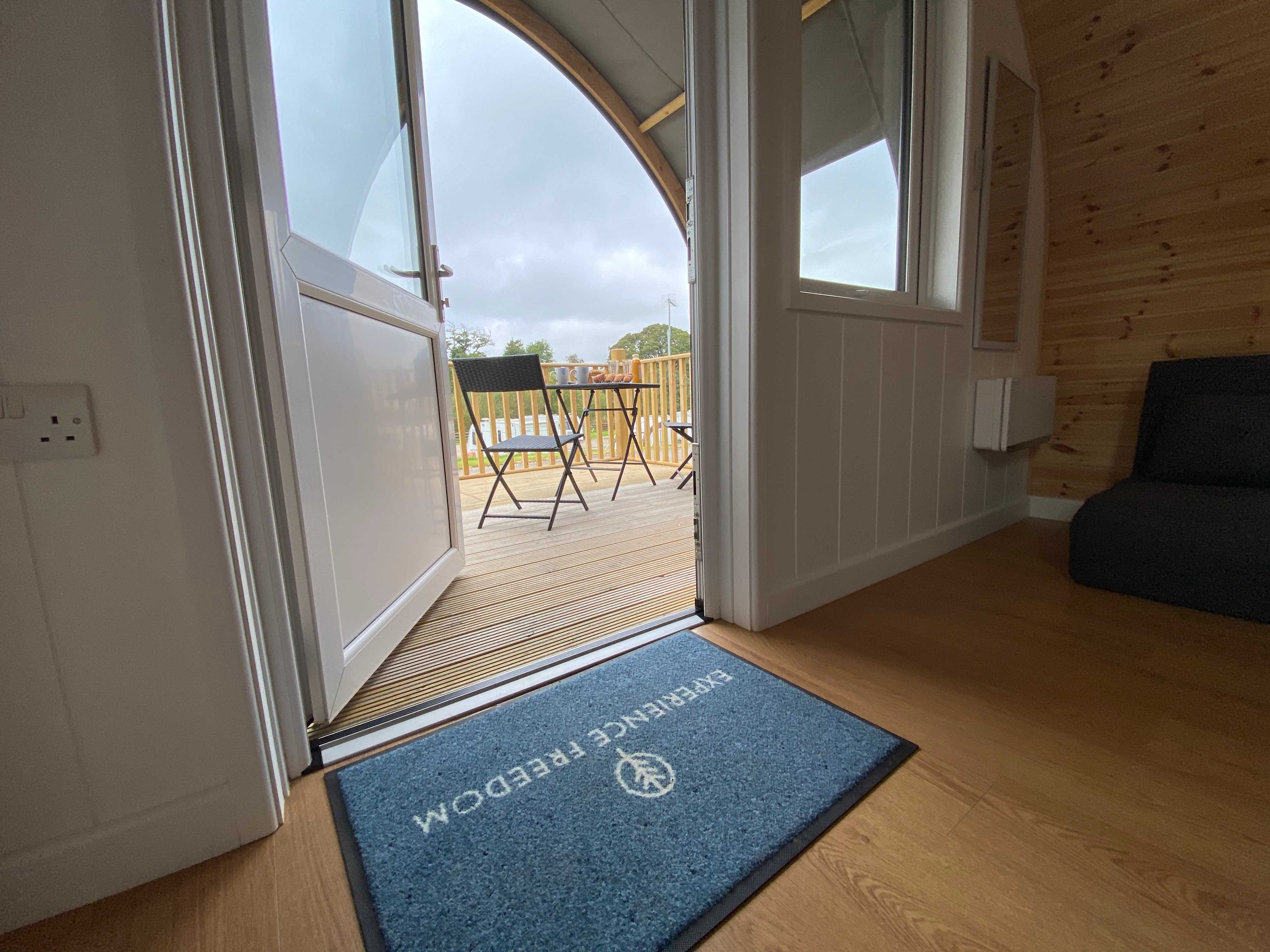 |
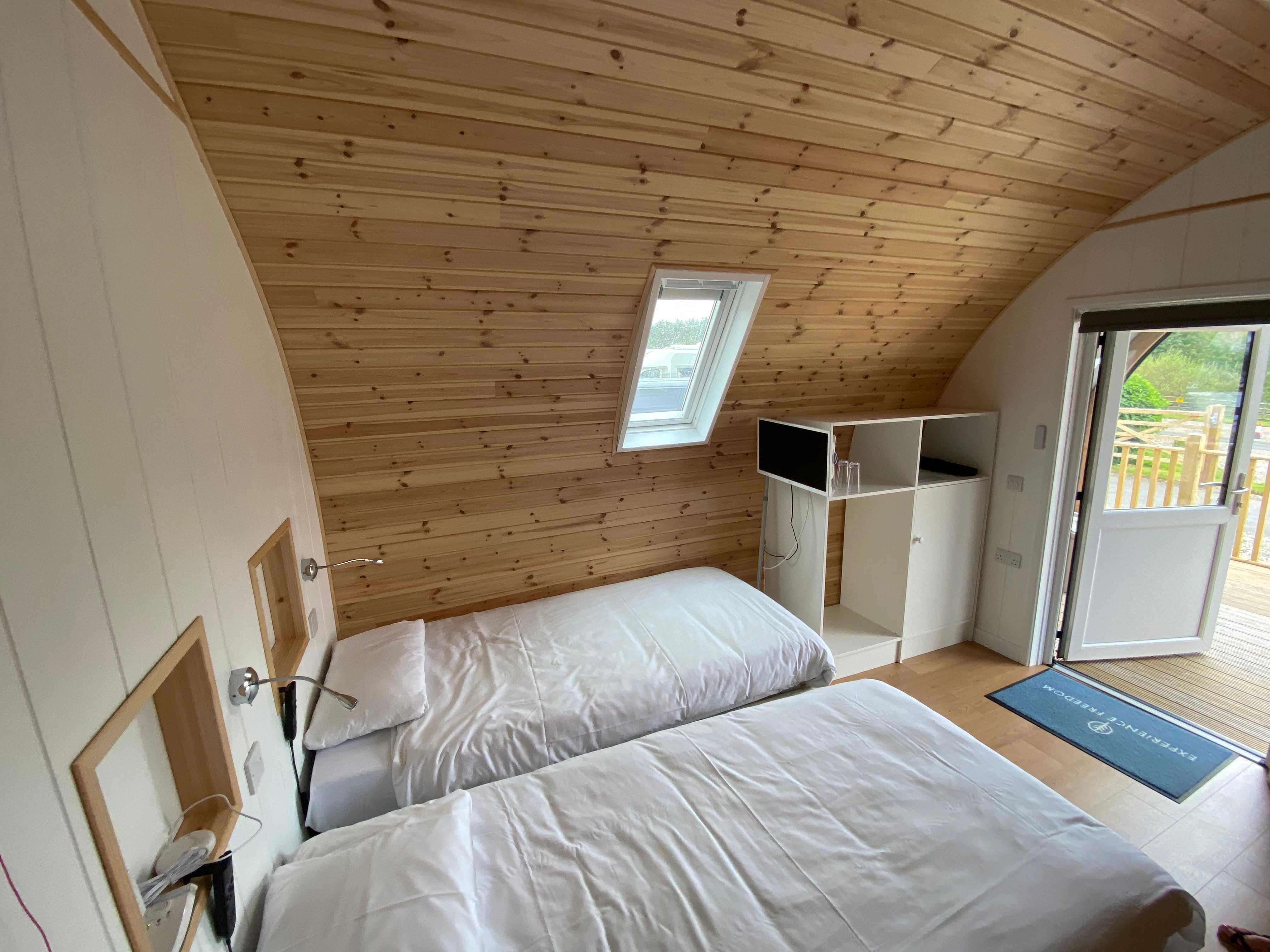 |
📸 Top tip: If you have step-free showers on site or in your fixed accommodation (such as lodges or pods), make sure the shower curtain or door is open when you take a photo, so guests can see that there are no steps, lips or shower tray edges to navigate when accessing the shower.
Likewise if you have grab rails or a shower chair in your accessible bathroom, try to take a photo that shows this equipment in place, so a guest can see where it is in relation to other features.
The below image shows a wheelchair-accessible bathroom with the shower curtain open to show the full shower and shower seat at The Star Inn, Essex.
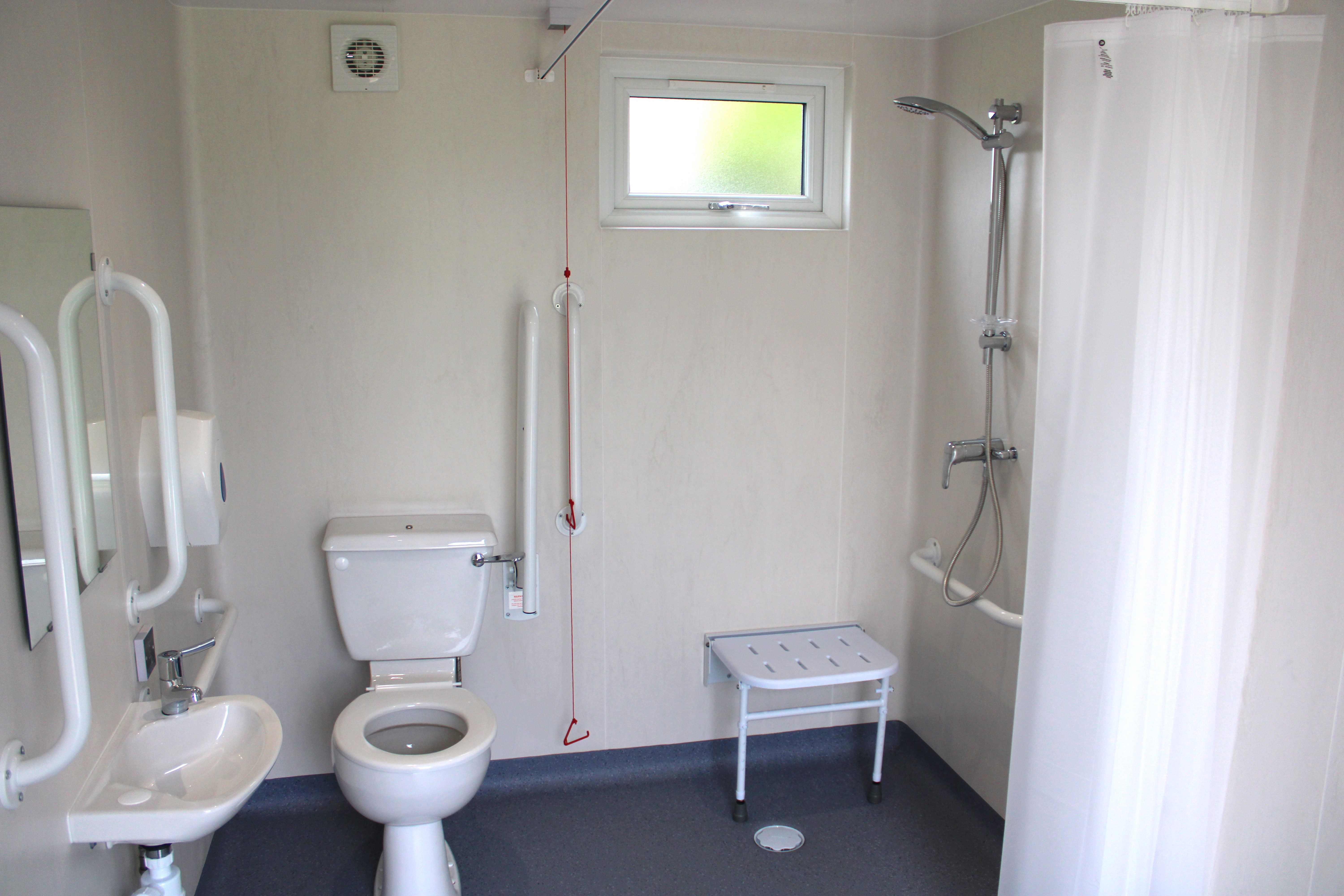 |
📸 Top tip: Adding a site map to your photos can help people with a variety of access needs to understand the layout of your site, and anticipate what to expect for their stay.
The below image shows the site map of High Sand Creek, Norfolk.
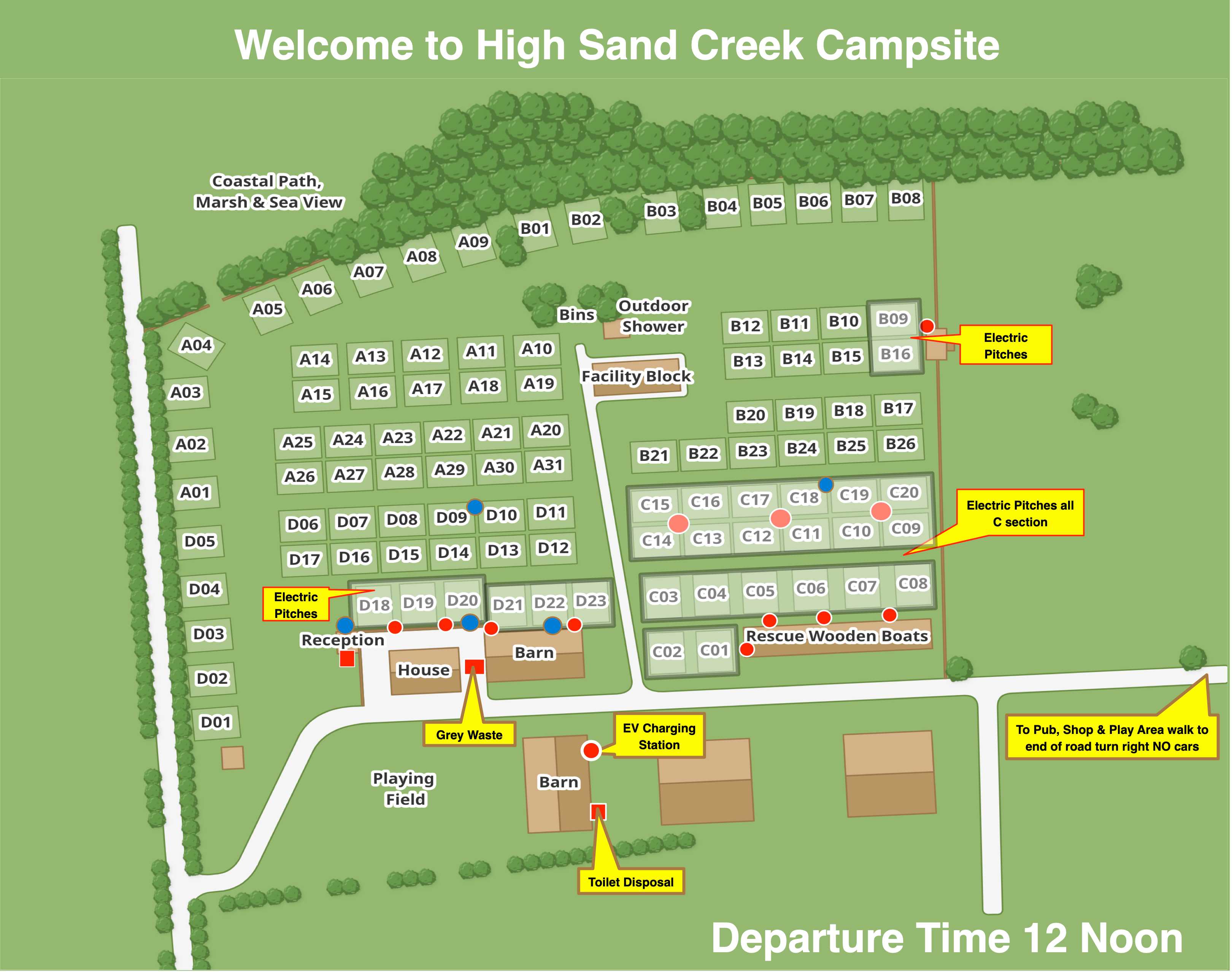 |
Additional examples
The below image shows the full access ramp to the bathroom and facilities block at The Star Inn, Essex.
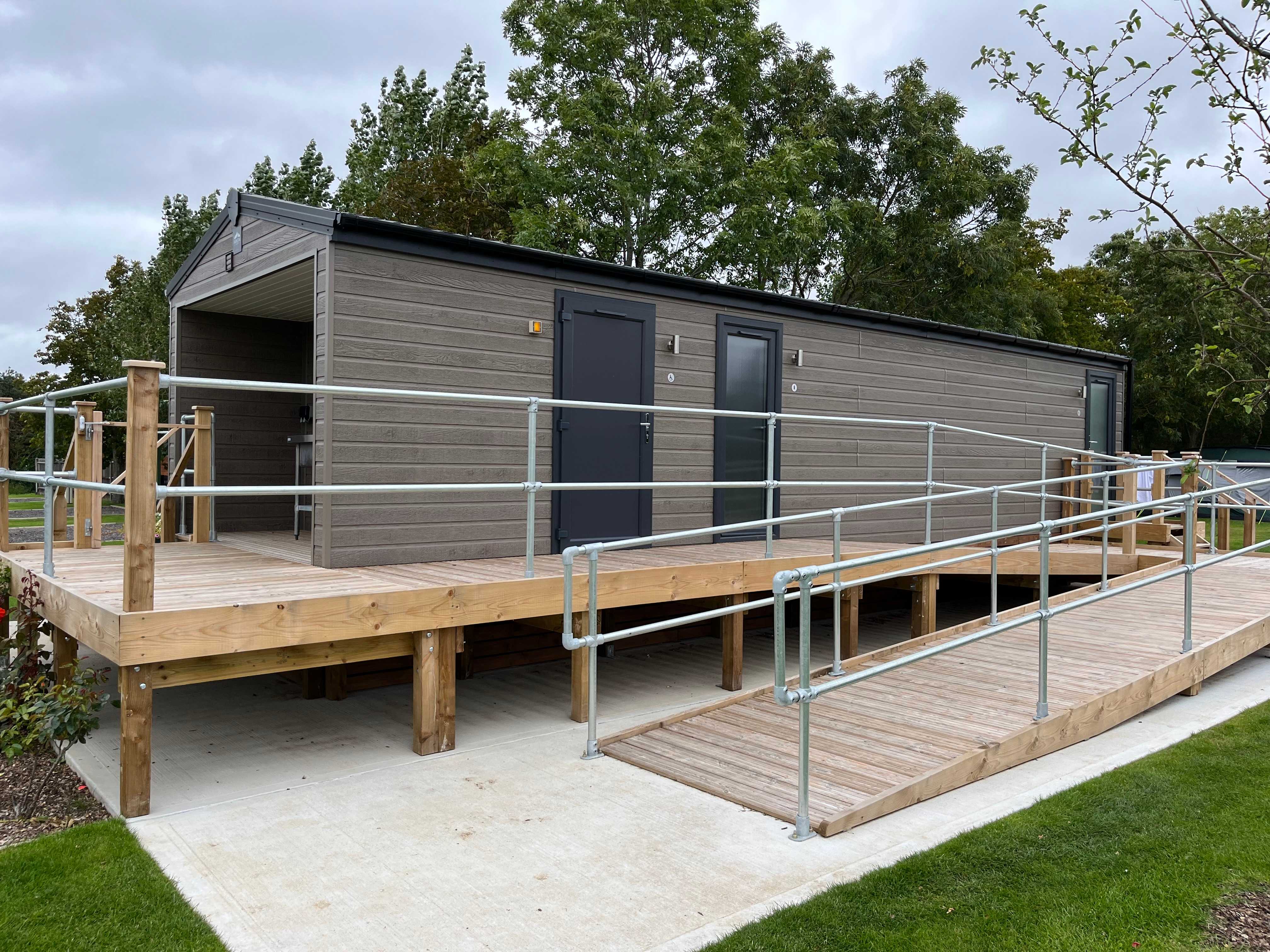 |
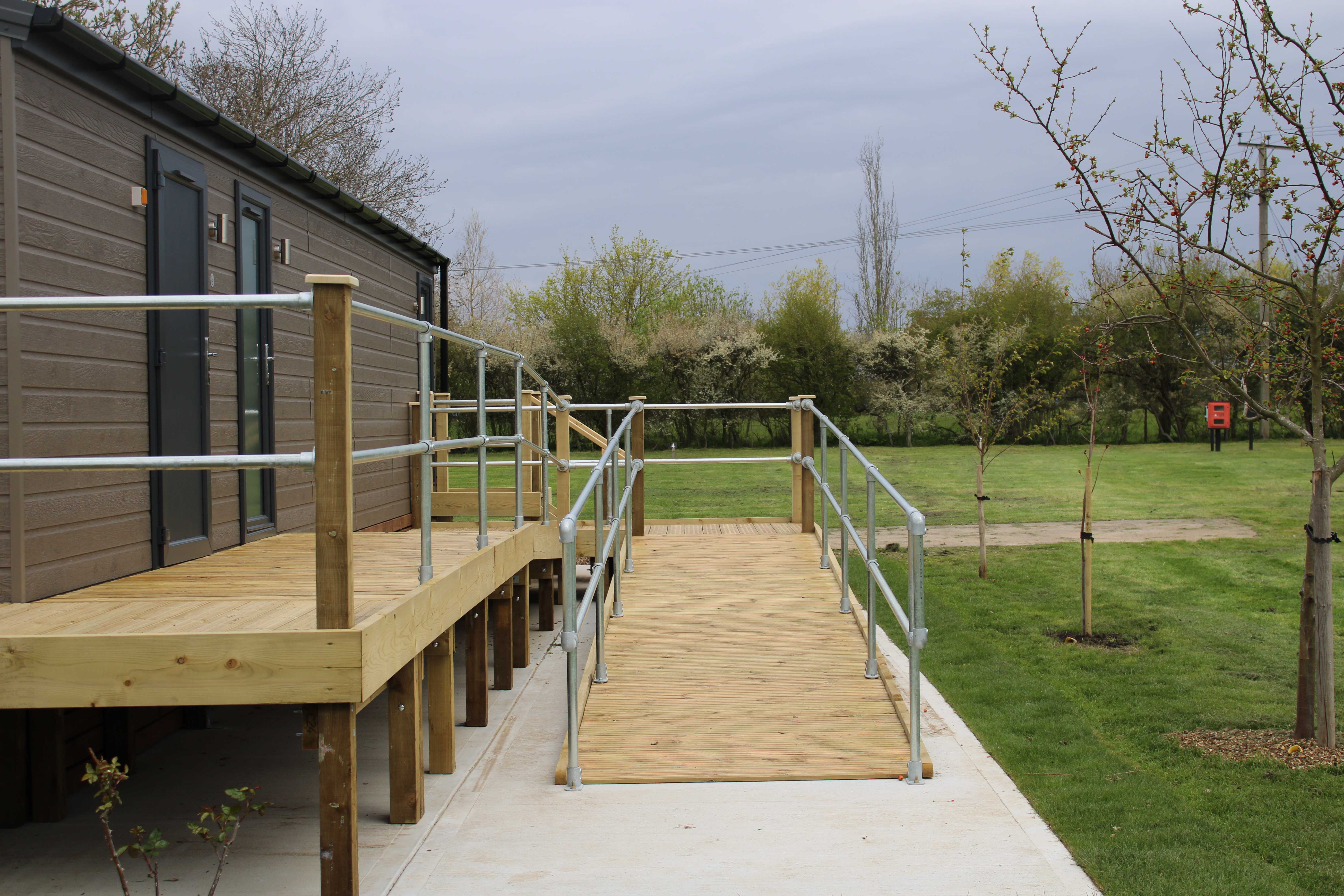 |
The below image shows the accessible parking space and level-access entrance to the on-site pub at The Star Inn, Essex.
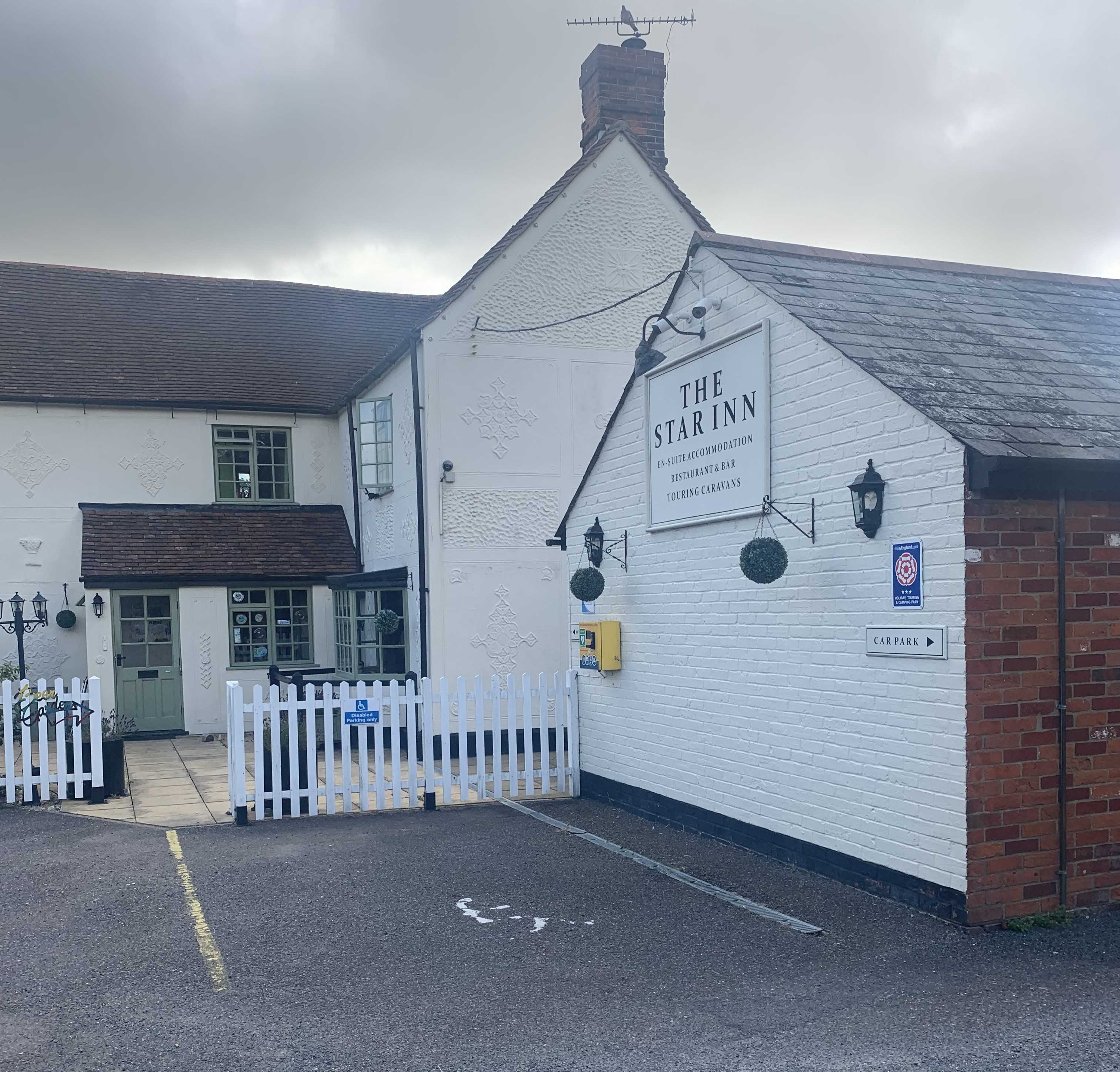 |
The below images from Pen Y Bont Touring and Camping Park in Wales show the safari tent from different interior and exterior angles, to give the customer a good sense of the entrance, the space and how they can move around.
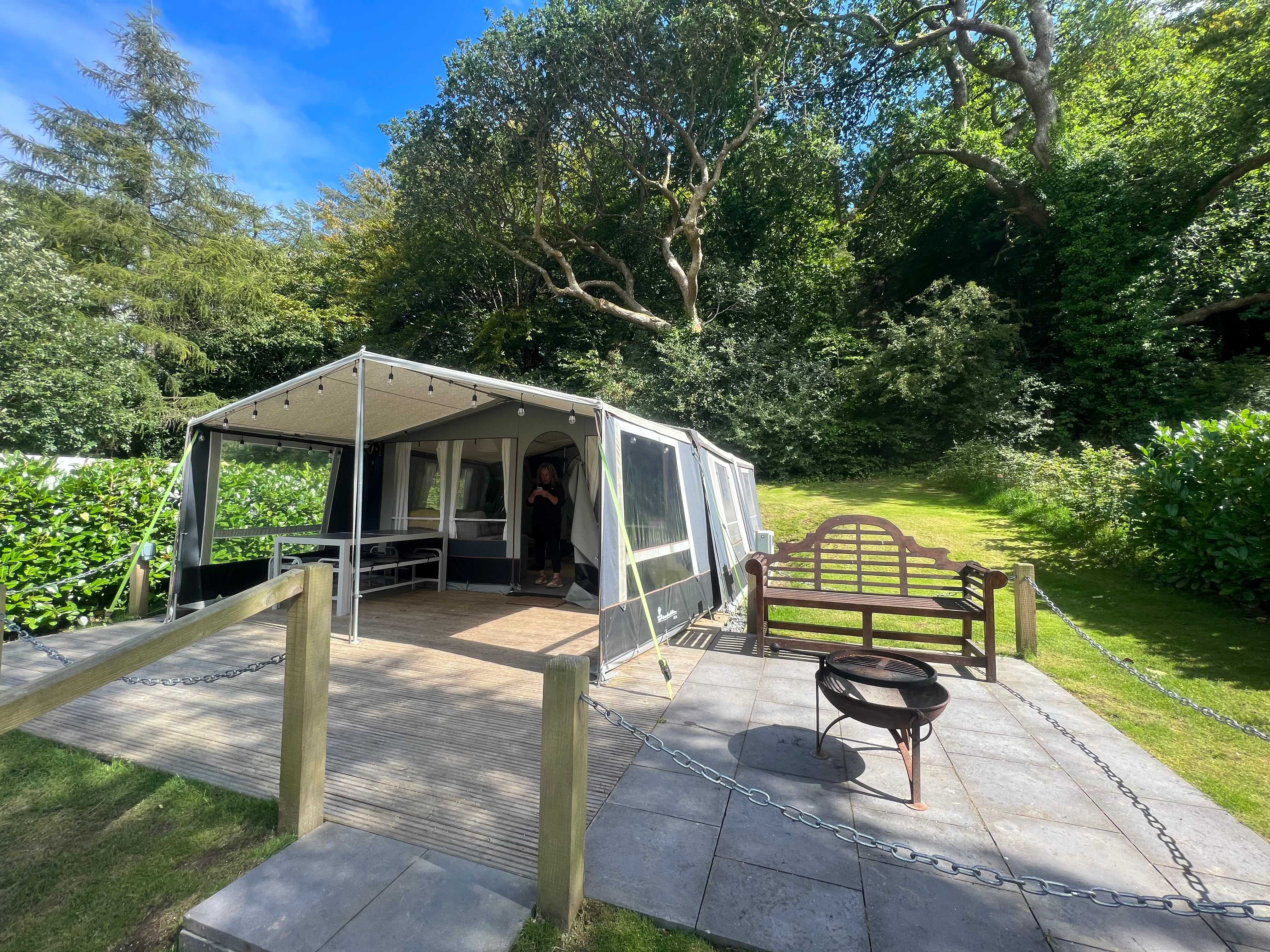 |
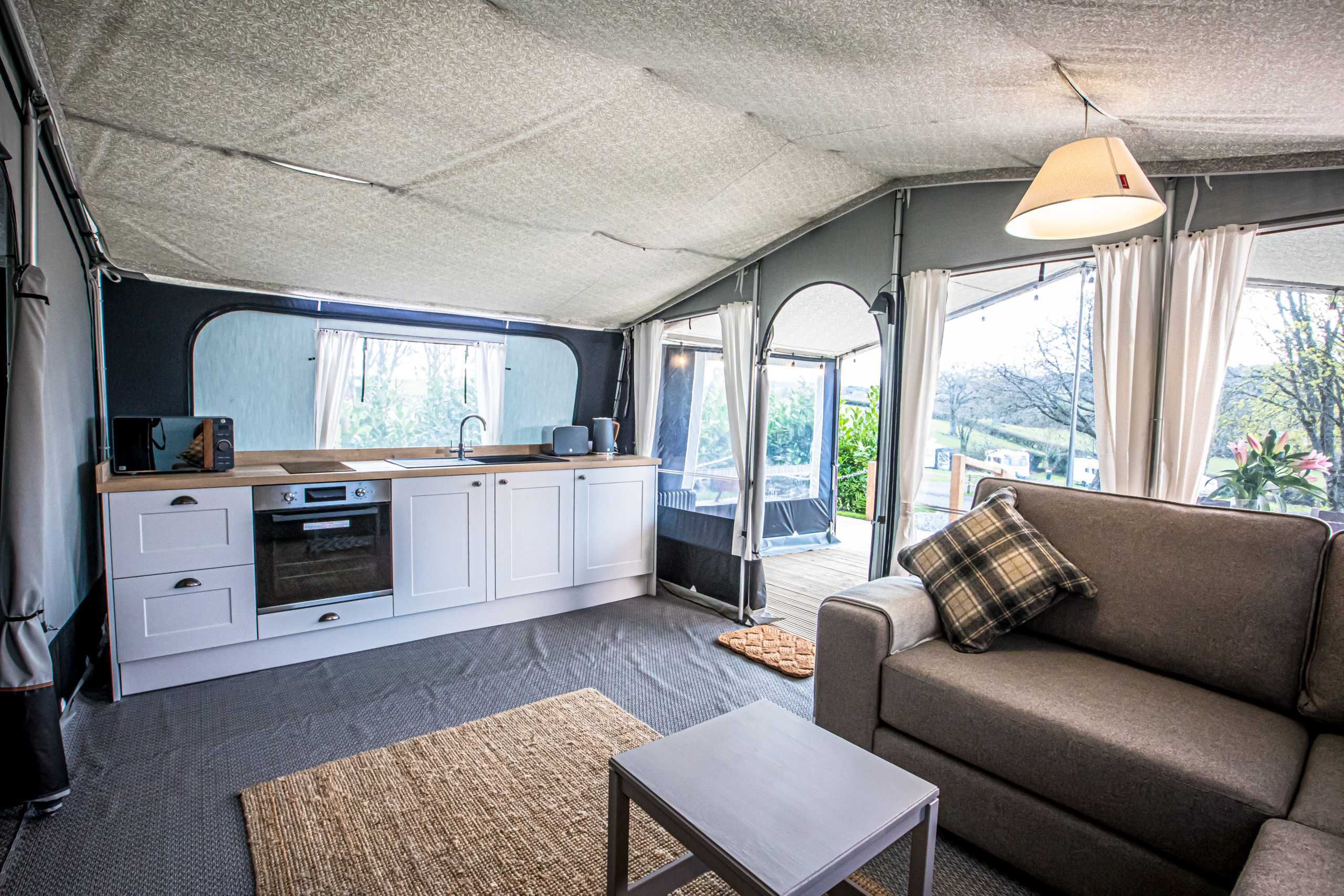 |
The below image shows the step-free entrance, with the doors open, to the reception building at Trevornick Holiday Park, Cornwall.
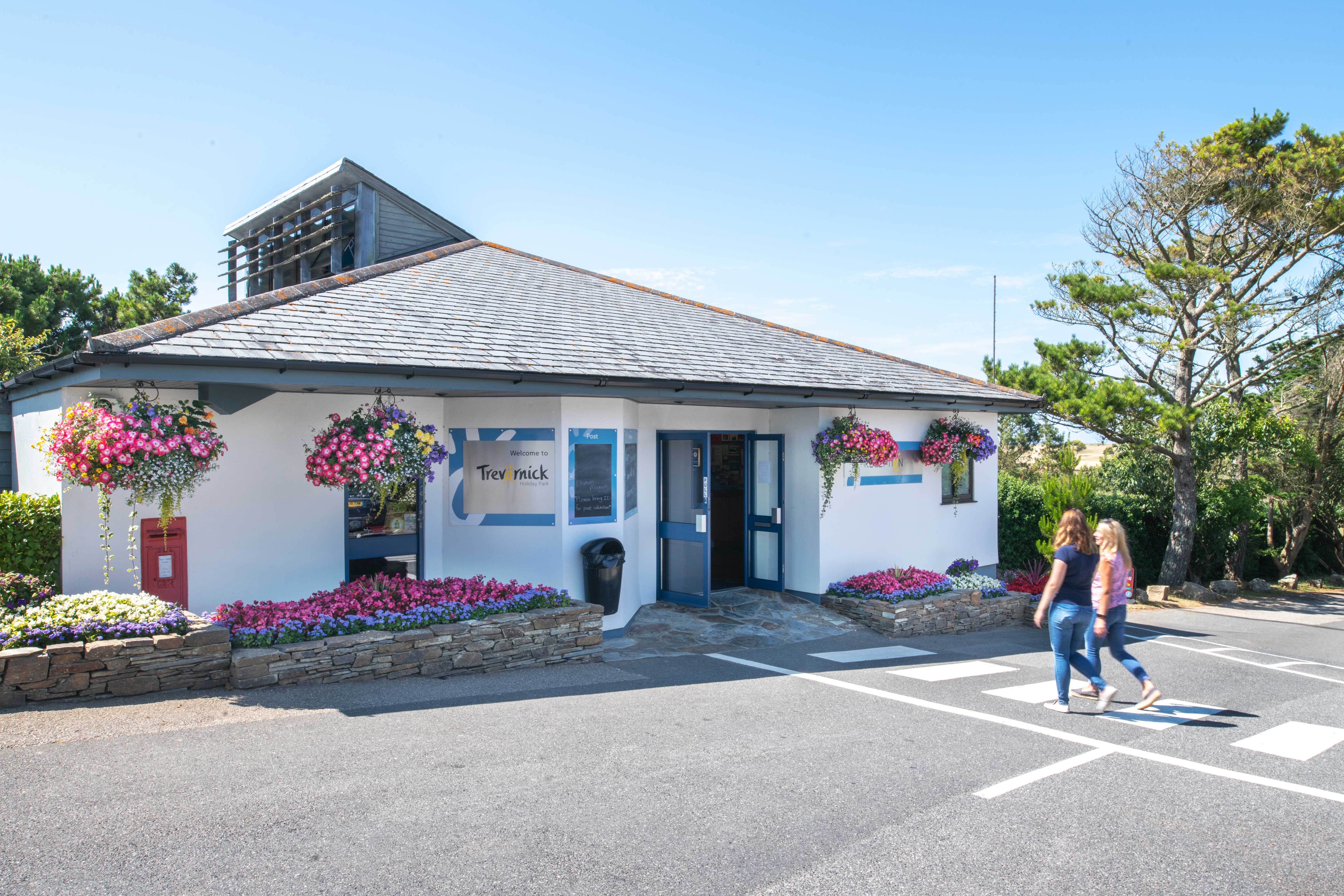 |